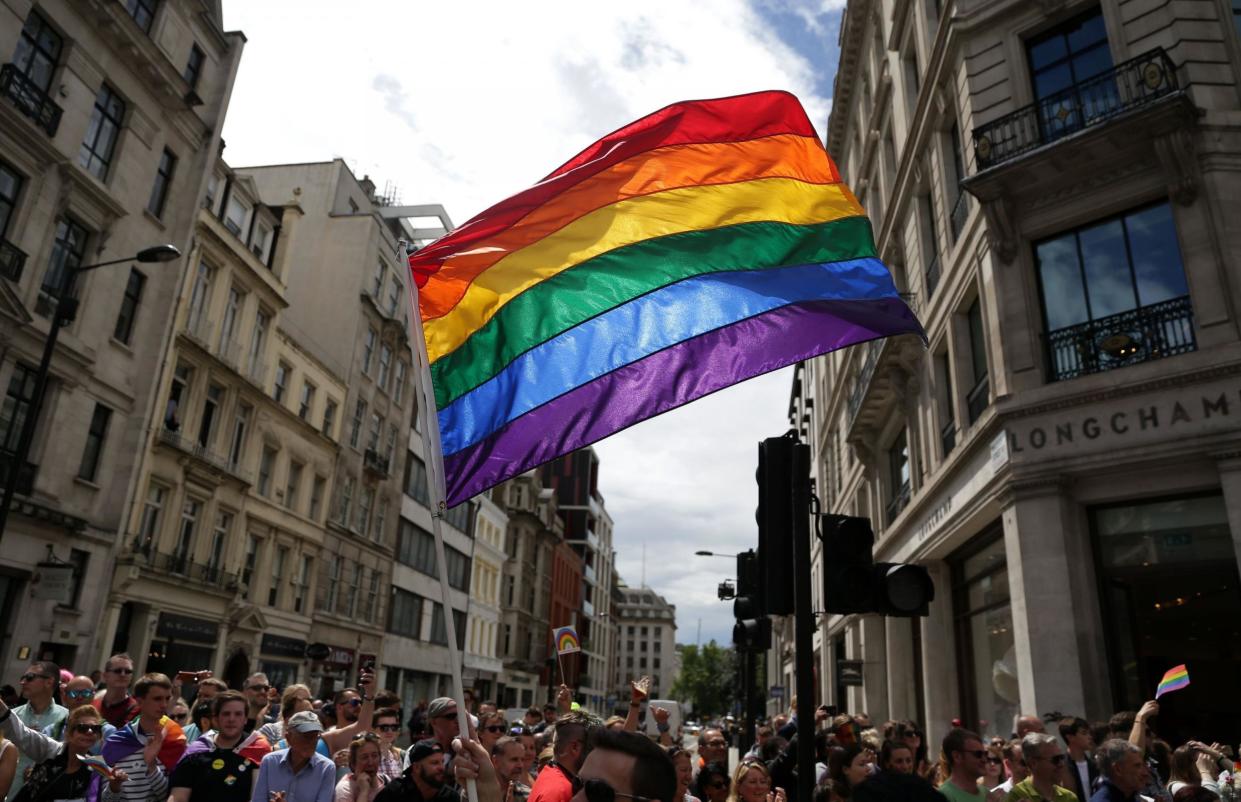LGBT rights are on the line today in the government's Brexit bill

A watershed moment will take place today in the House of Lords.
Peers will, in effect, vote on whether to shrink human rights protection in the UK. This is because the government wants to discard the EU Charter of Fundamental Rights as part of its Brexit legislation. They insist that it must not be part of UK law post-Brexit, even though other EU law is to be retained.
At the moment, it doesn’t matter who you are, whether you are an individual or a business, an asylum seeker or an EU national from outside the UK: if EU law is engaged, the Charter applies. If the Lords vote to ditch the Charter, it will mean that on Brexit day, 29 March 2019, the level of human rights protection in the UK will be significantly diminished.
While the government seeks to argue that the protections enshrined in the Charter already exist in British law or will be incorporated through other EU directives, there is really no coherent argument for scrapping it. The government’s decision seems ideological; a rejection of the concept of human rights.
It doesn’t matter that EU law is designed to be interpreted through the lens of the Charter and is therefore incomplete without it. Nor does it matter that it is precisely at times of transition that we need human rights the most. Most shockingly, the government is prepared to sacrifice the rights of people who have no other meaningful source of protection than the Charter. Chief amongst these are members of the LGBT community.
The speed with which LGBT equality has been fostered within the UK is a marvel of the 21st century, but it could not have happened without the EU. It was EU law, epitomised by the Charter, that kick-started the UK’s commitment to LGBT equality. The Charter is the only international human rights document that contains a provision outlawing discrimination on the grounds of sexual orientation. Other treaties have been interpreted to apply to gay men and lesbians. The Charter is different: it expressly protects against discrimination.
It is important to recall that at the time the Charter was coming into life, the only laws applicable to lesbians and gay men in the UK penalised and stigmatised that community. There were specific criminal laws that only targeted gay men. There was an unequal age of consent and the odious Section 28 censored any discussion of homosexuality in schools and blighted the lives of gay and lesbian people, particularly LGBT youth.
No laws protected LGBT people. Gay men, lesbians and trans people could be fired or thrown out of their homes simply because employers and/or landlords did not want “queers” in their workplace or in their properties. Infamously, in the mid-90s four members of the armed forces had the temerity to challenge the fact that they’d been fired because they were gay and lesbian. They lost their legal challenge in the English courts. The future was bleak.
Yet a decade later UK law recognised the equality of lesbian, gay and bisexual people. The law for trans people was not perfect but progressing. How did this seismic shift happen? In a new report, Brexit: The LGBT Impact Assessment, Gay Star News, a leading LGBT publisher, examines the role played by the EU in establishing the equality that the LGBT community now takes for granted. I am one of the authors of that report.
The report reminds us that when, in 2016, David Cameron resigned as Prime Minister, he heralded as one of his greatest successes the fact he had pushed through equal marriage, arguably his finest legacy. Yet this was the same David Cameron who as a new MP had voted to retain Section 28. The irony is not lost that it was a Conservative Prime Minister who introduced equal marriage and yet barely a decade earlier his party had fought tooth and nail to keep LGBT people marginalised and downtrodden.
The report goes on to show that the UK’s journey towards full equality for LGBT people could not have happened without the EU. Whilst gay men were still being persecuted in the UK, the EU established that sexual orientation discrimination was incompatible with membership of the Single Market. The EU Charter expressly protecting against discrimination on grounds of sexual orientation then followed.
The Charter has acted as a catalyst. Once required to by the EU, the governments of Tony Blair and Gordon Brown dismantled LGBT inequality with gusto, and Cameron’s coalition government put the icing on the cake with equal marriage in England and Wales. Scotland implemented same-sex marriage shortly after. Sadly, marriage equality has been blocked in Northern Ireland. The UK has gone beyond what has been required by EU law, but without the measures adopted by the EU, would we be where we are now?
Just as importantly, in the current context, is this question: can LGBT equality be taken for granted without the Charter? Recent history would suggest otherwise.
As that doughty fighter for equality, Lord (Michael) Cashman, declares in his foreword to the Report, “The Charter of Fundamental Rights is a stunning reaffirmation that rights will be protected against governments who would not otherwise give them, or wish to take them away.” Lord Cashman continues, “Section 28 happened. It was politically expedient and our Parliament passed it. This should be our reminder that, in the landscape of human rights, we always need to guard against the unexpected.”

 Yahoo News
Yahoo News 
